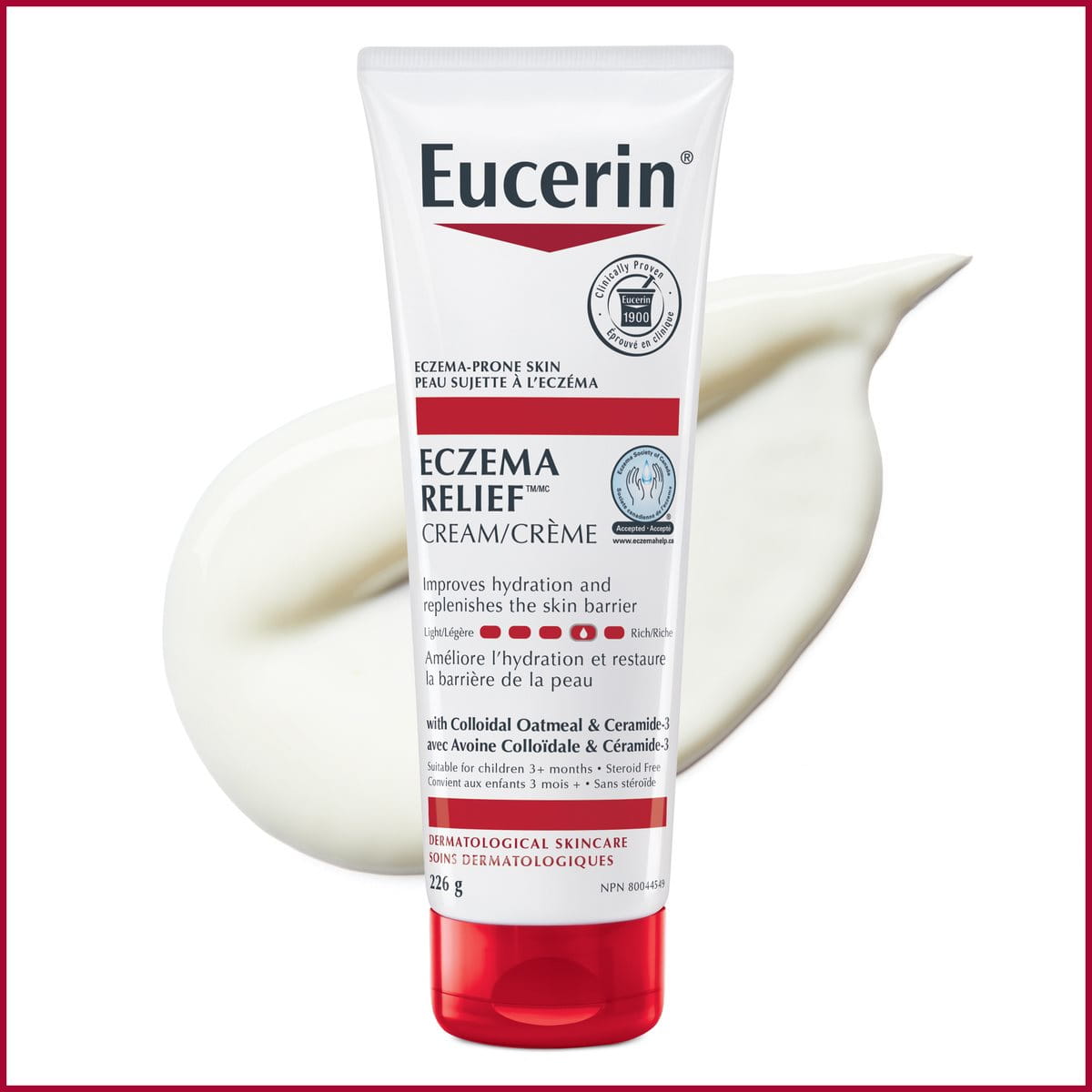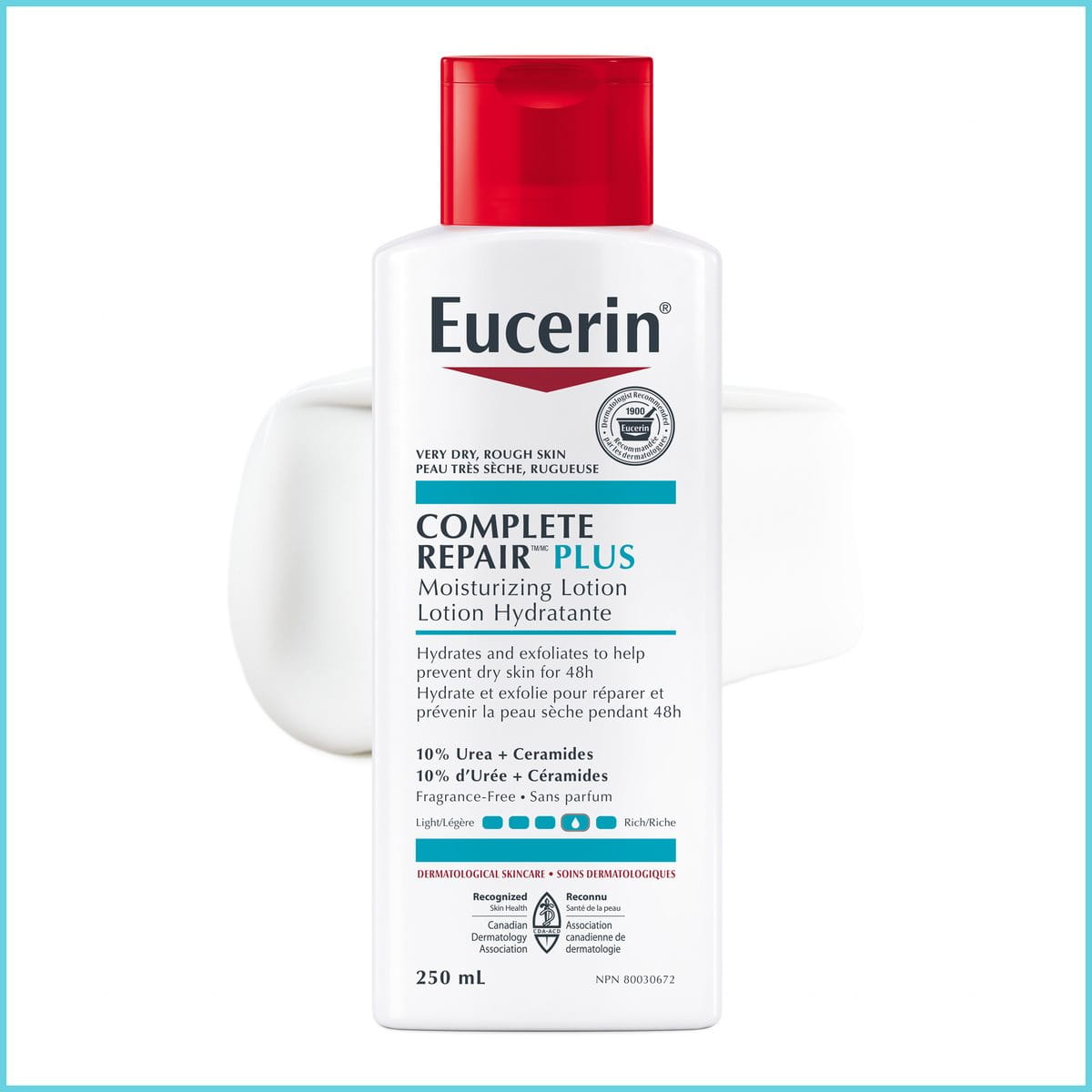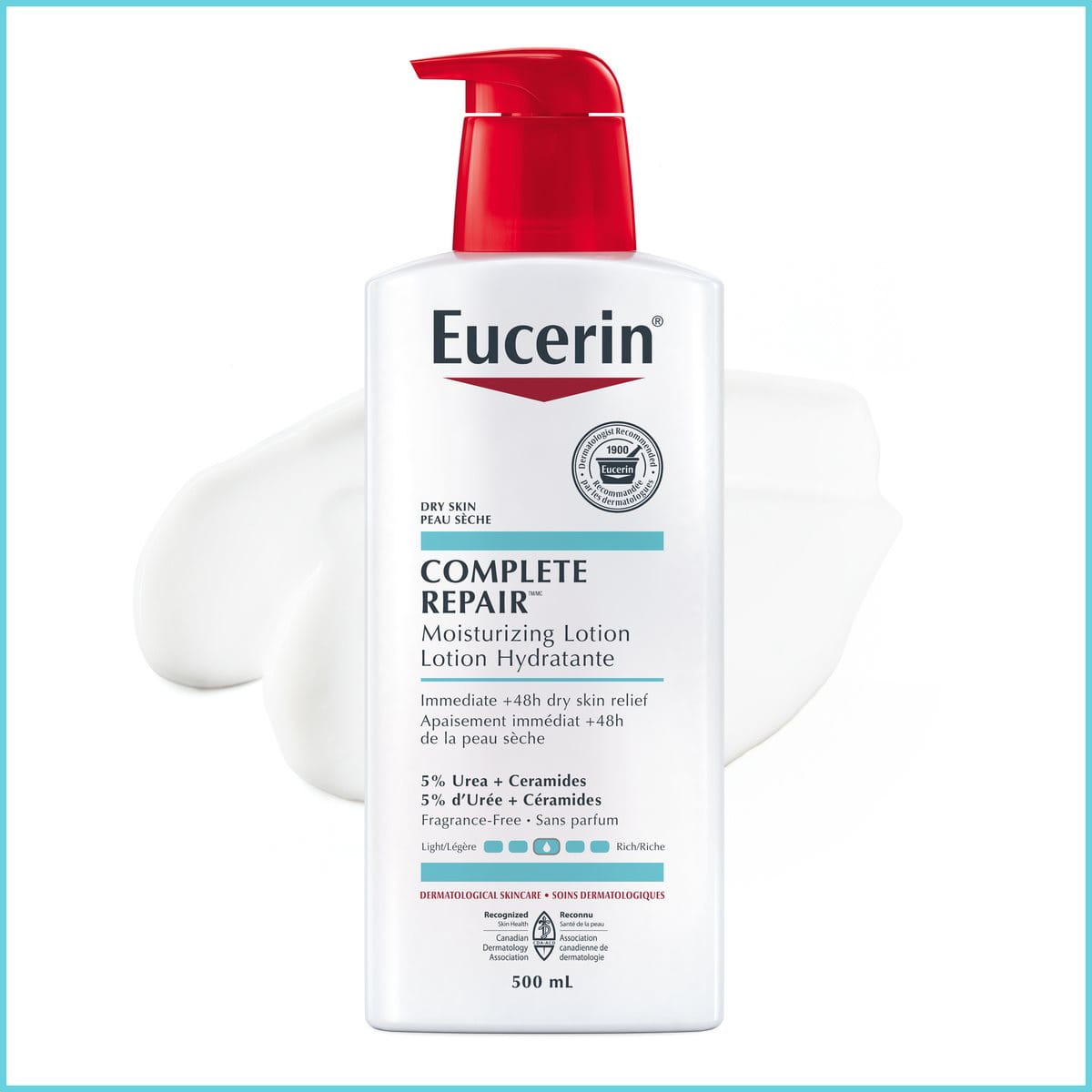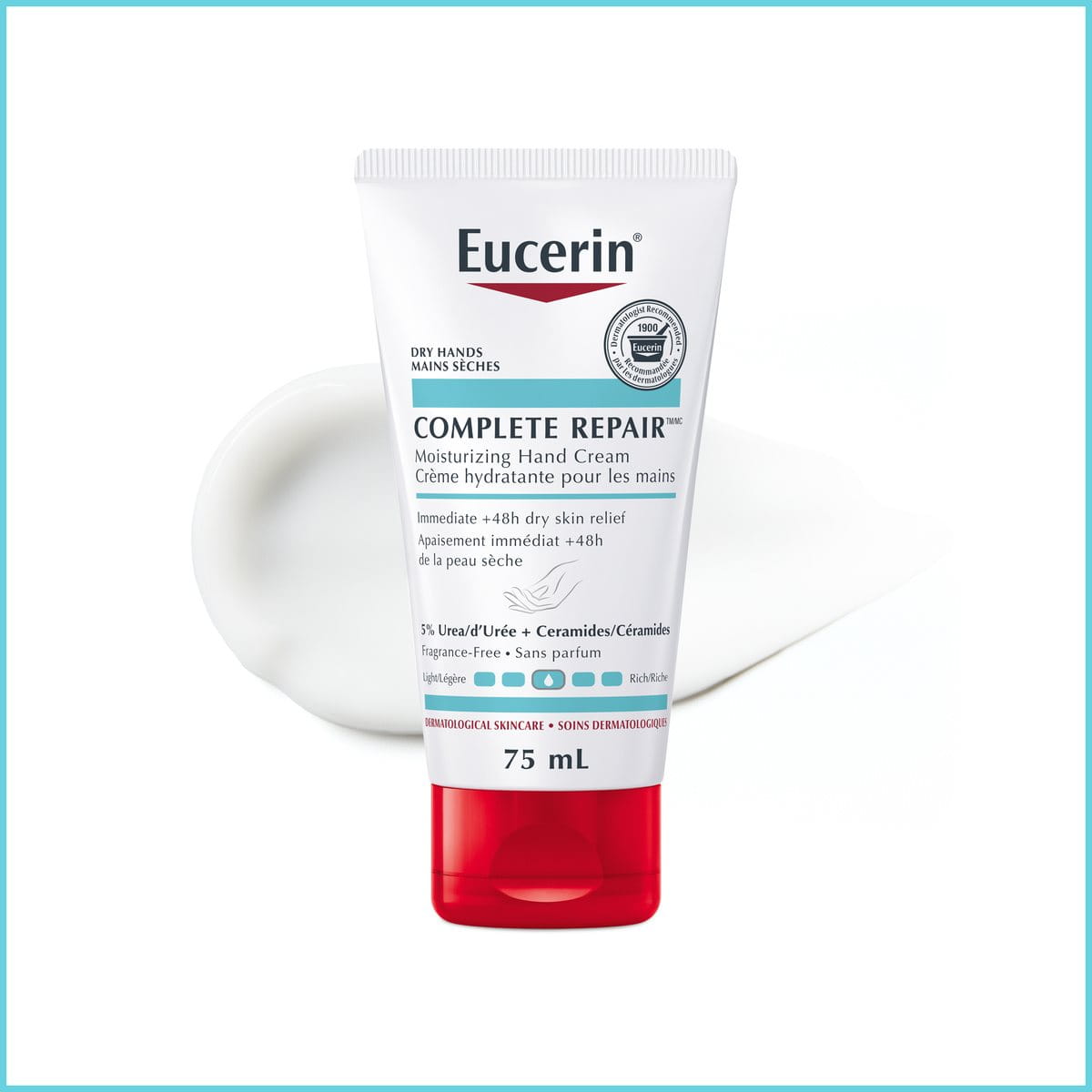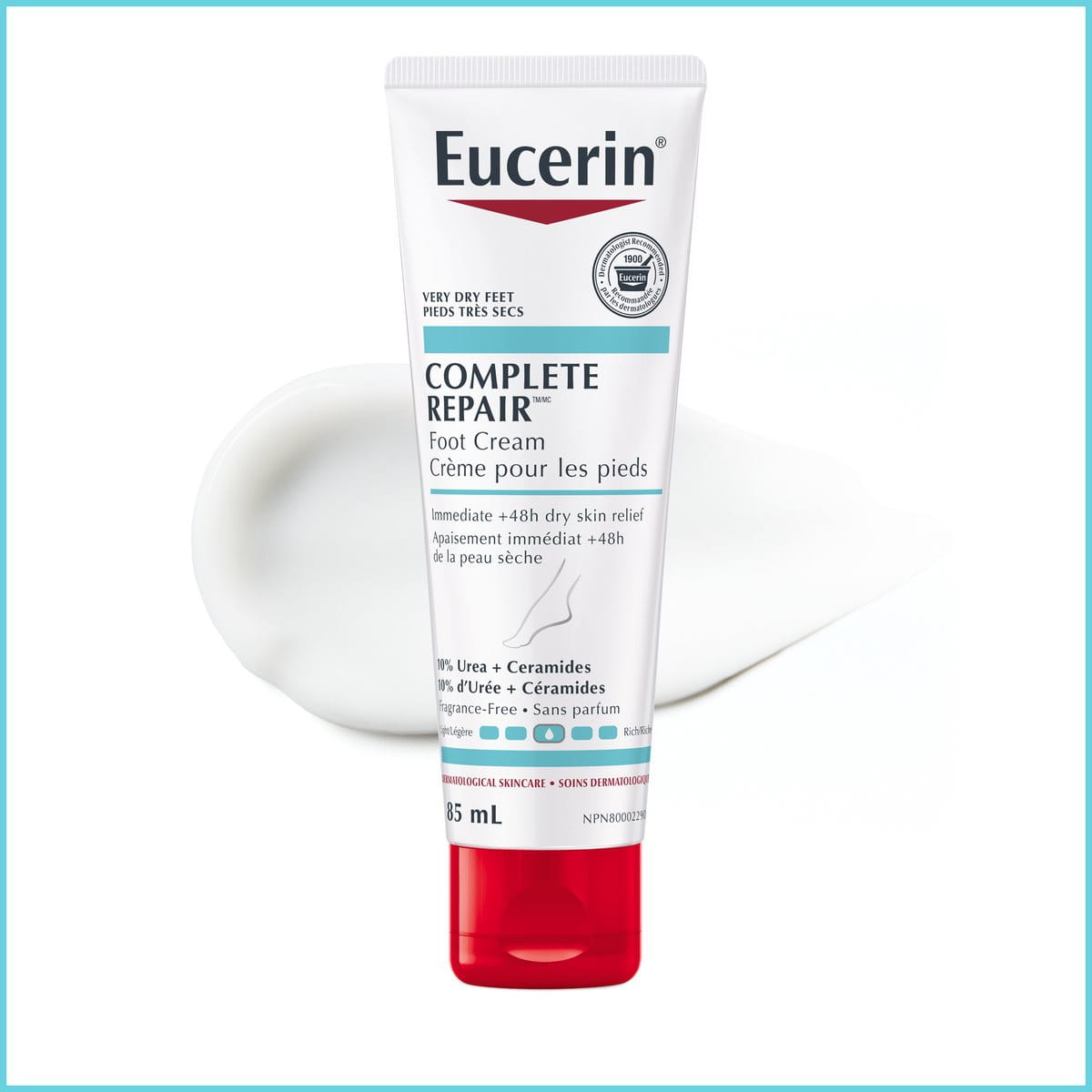Here we examine the signs of a damaged skin moisture barrier, the main causes, and which products can be used to help repair it.
Our skin’s moisture barrier is a crucial part of skin health, helping to protect us and retain moisture in the skin. However, things like excessive cleansing, harsh ingredients in skincare products, as well as certain skin conditions such as eczema, can lead to a damaged skin moisture barrier over time.
Here we examine the signs of a damaged skin moisture barrier, the main causes, and which products can be used to help repair it.
Here we examine the signs of a damaged skin moisture barrier, the main causes, and which products can be used to help repair it.
What is the skin moisture barrier?
The skin moisture barrier is part of the stratum corneum, or outermost layer of the skin, and is comprised of dead skin and lipids that work together like a brick wall to protect the delicate skin beneath the surface. The moisture barrier plays a very important role not only in helping to retain moisture in the skin, but also in helping to protect the skin from potential harm from things like harsh chemicals and infectious bacteria. The skin’s moisture barrier is the body’s first line of defense against the environment.
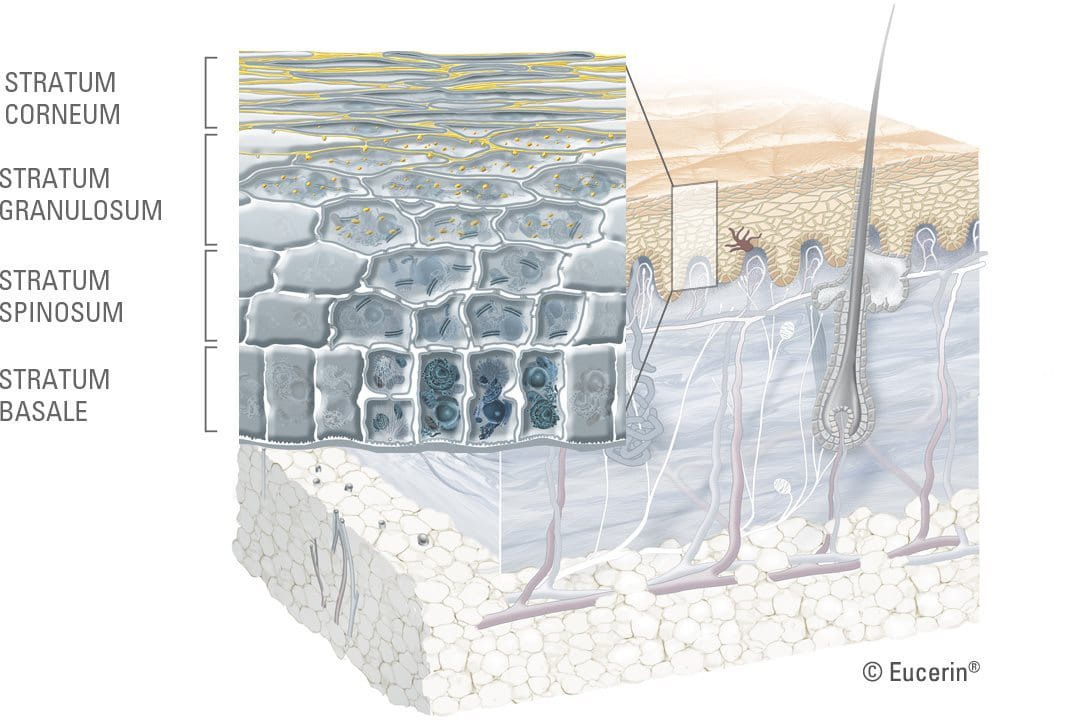
Damaged skin moisture barrier: signs
Signs of a damaged skin moisture barrier can change how the outer layer of skin appears, and can easily be mistaken for other skin conditions, making identifying a damaged skin moisture barrier somewhat difficult.
Look out for the following signs of skin moisture barrier damage:
- Dry, scaly skin
- Sensitive or irritated skin due to dryness
- An uneven skin tone
- Acne due to clogged pores from dead skin buildup
- Reduced skin elasticity due to dryness
What causes a damaged skin barrier?
There are several factors that can contribute to compromising the skin’s moisture barrier, from exposure to certain chemicals, to conditions in the environment, and even certain skin conditions. Due to individual skin sensitivity and the myriad ways skin can be affected by both intrinsic and external factors, pinning down the cause of skin moisture barrier damage can be tricky sometimes, but here are some common causes to watch out for:
Some common causes of skin moisture barrier damage include:
- Ambient climate – indoor and outdoor – things like low temperatures and dry air can contribute to skin moisture barrier damage.
- Air pollution
- Excessive alcohol consumption
- Prolonged sun exposure
- Skincare products containing irritants or allergens
- Over-washing the skin
- Over-exfoliating the skin
- Using detergents and soaps that can strip the skin of its natural oils
- Excessively rubbing or scratching the skin
- Aging – the skin’s natural aging process involves reduced sebum production and changes in the skin’s moisture barrier.
How to help repair the skin moisture barrier
Since skin moisture barrier damage is often caused by an improper skincare routine such as using products with harsh ingredients or over-washing and over-exfoliating the skin, the first step to helping repair a damaged skin moisture barrier is to take a look at your skincare regimen.
With a combined focus on repairing existing damage and adopting a routine to help prevent further skincare moisture barrier damage, you can help restore the moisture balance in your skin for a healthy-looking glow.
With a combined focus on repairing existing damage and adopting a routine to help prevent further skincare moisture barrier damage, you can help restore the moisture balance in your skin for a healthy-looking glow.
Here are some tips to help repair a damaged skin moisture barrier:
- Use gentle cleansers and skincare products to avoid stripping moisture from the skin.
- Exfoliate skin gently to help prevent dead skin buildup and adjust how often you exfoliate based on your skin’s response.
- Use moisturizing products that work to help not only hydrate skin but also retain skin’s moisture.
- Drink plenty of water to promote hydration from the inside out.
Here are some tips to help prevent skin moisture barrier damage:
- Minimize contact with external allergens or irritants whenever possible.
- Hot water can strip skin of its natural moisture, so bathe in water that is lukewarm, not hot, and limit shower or bath time to no more than 10-15 minutes in order to help reduce the likelihood of weakening the skin’s moisture barrier.
- Avoid overconsumption of alcohol.
- Avoid unprotected or prolonged sun exposure and be sure to wear sunscreen and take proper sun protection measures when spending time in the sun.
- Be careful not to scratch or rub your skin too much and avoid the itch-scratch cycle.
- Use gentle clothing detergents to help avoid skin contact with potential irritants
Damaged skin moisture barrier resulting in very dry skin
For skin moisture barrier damage resulting in very dry skin, using a moisturizing product with ceramides can be beneficial. We recommend Eucerin®’s Complete Repair™ range. Eucerin® Complete Repair™ effectively works to replenish your skin’s moisture barrier, leaving your skin feeling smooth and soft. This product range‘s creams and lotions combine Urea and Ceramides, two naturally occurring ingredients, to create a unique moisturizer for dry skin that hydrates and helps restore the protective skin barrier.
For very dry and rough skin, Eucerin® Complete Repair™ Plus Moisturizing Lotion with 10% Urea exfoliates and intensely moisturizes skin and is clinically proven to immediately relieve very dry, rough skin for 48 hours for skin that looks and feels smooth and healthy again. Its formula combines ingredients like Urea, Ceramide-3 and Glyceryl Glucoside to combat multiple key factors that cause dry skin.
How long does it take to repair the skin barrier?
If skin barrier symptoms are severe, skin barrier repair may feel like fighting a losing battle.
A damaged skin barrier can be brought back to its full health, but skin barrier repair can take a while depending on the skin type and the extent of the damage.
Repairing the skin’s moisture barrier can sometimes take 3-4 months before seeing improvements. Implementing a gentle skincare routine, avoiding irritants and maintaining a healthy lifestyle are key strategies to promote skin moisture barrier repair.
If you’re concerned with your skin barrier, speak to a dermatologist or doctor for further advice.
If you’re concerned with your skin barrier, speak to a dermatologist or doctor for further advice.
The information provided herein is not intended to be medical advice. Nor is it intended to treat the underlying skin disease or condition. The information is provided solely to:
- Moisturize, soften and smooth dry skin
- Improve the appearance of the skin
- Achieve healthier-looking skin
